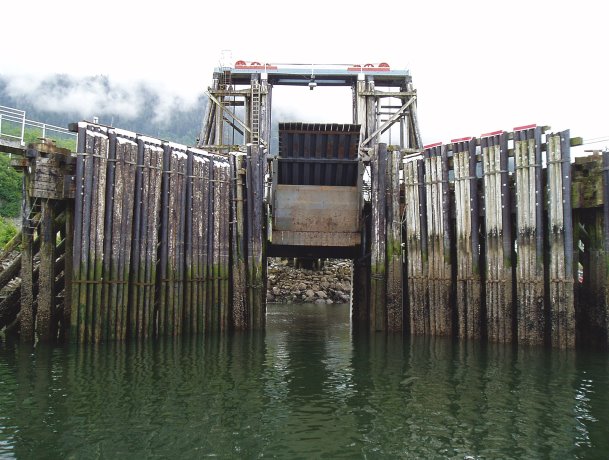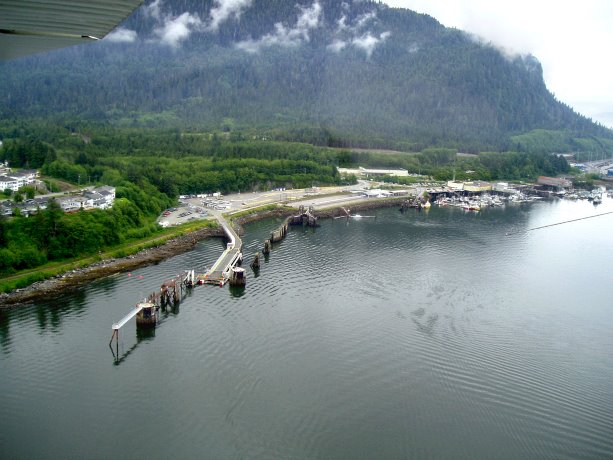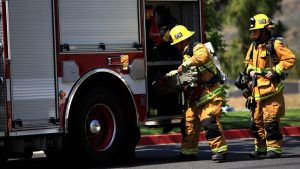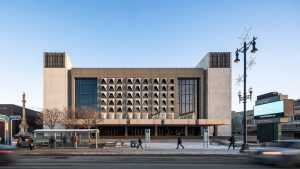The Canadian steel industry is demanding the federal government take action to support domestic suppliers who are being prevented by protectionist U.S. legislation from participating in the construction of a ferry terminal in Prince Rupert, B.C.
"We think that it is only a matter of time before this starts hitting other regions, provinces and territories in Canada, where people are going to be faced with American legislation being mandated on our soil," said Tareq Ali, Canadian Institute of Steel Construction (CISC) marketing and communications director.
"We want the Canadian government to take action, as well as the Ontario government to take a look at this and ask for action to be taken at the federal level. This threatens the existence of our industry."
The State of Alaska is currently reviewing bids for the Prince Rupert Ferry Terminal Replacement project, which is being funded by the U.S. government through the Federal Highway Administration (FHWA) and the State of Alaska, Department of Transportation & Public Facilities.
The port of Prince Rupert is located about 750 kilometres north of Vancouver near the southern tip of the Alaska Panhandle.
The port facility is on Canadian Crown land, but the property is leased back to the Prince Rupert port authority. Last year, the ferry terminal and land was sublet to the Alaska Marine Highway System under a 50-year lease that expires in 2063.
"The significance of this project is that there is an immediate short-term impact on our members in B.C., and because it is such a dangerous precedent that includes a 50 year lease. Who knows what they could be building there next?," said Ali.
"It is such a dangerous precedent, because if it is allowed to move forward there, other such independent authorities right across the country could follow a similar example."
The deadline for contractors to submit bids to the State of Alaska was Dec. 4. The tender includes the supply of labour, materials, and equipment, as well as the performance of all construction work. The engineer’s estimate for the construction of the ferry terminal is between $10 million and $15 million.
All iron and steel products associated with the construction of this project are subject to Buy America provisions.
The Buy America Act contains provisions that are applied to the procurement of transit-related projects with a value of more than US$100,000. Buy America provisions are a condition of U.S. federal government grants to state, municipal or other organizations including transit authorities.
"Buy America is protectionism. It is good for Americans, but it is not good for its trading partners, who are having this shoved down their throats," said Ali.
"You can do it on American soil, but if you start imposing that in sovereign countries’ territory, that is a big problem. That needs to be stopped."
According to the Canadian government website, Buy America provisions, such as requirements for 100 per cent U.S. content for iron/steel and manufactured products, put Canadian goods and services at a serious disadvantage when they form all or part of a bid by any supplier, whether U.S. or Canadian.
B.C. Premier Christy Clark has been very outspoken in her criticism of U.S. Buy America provisions being used for the construction of the Prince Rupert ferry terminal. She said the U.S. should not be allowed to use Buy America provisions in Canada and require the use of U.S. steel.
Clark said the situation is unacceptable and characterized the behaviour of the U.S. and Alaska governments as unfriendly.
Ali said the Canadian government has been reluctant to stand up and ensure Canadians get a level playing field in relation to this project.
"We are demanding that with our taxpayers’ money on land that we own, you can’t allow another country to shut our people out," said Ali.
"It’s an unacceptable and scary thing that is happening with infrastructure."
He argues that the North American economy is very integrated, so Canadian companies should be excluded from Buy America legislation.
The Prince Rupert Ferry Terminal Replacement project involves the demolition and removal of all existing marine terminal structures, including timber mooring dolphins, timber transfer bridge, cable bridge lift system, and associated steel catwalks and other features.
In addition, the project includes the construction of a new, modern ferry terminal facility encompassing steel-pile mooring dolphins, steel transfer bridge, concrete bridge abutment, steel bridge support float system, steel catwalks and other items including electrical system and potable water utilities.












Recent Comments
comments for this post are closed